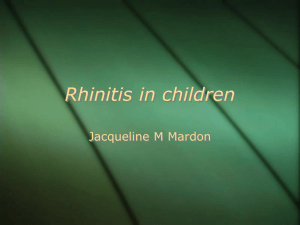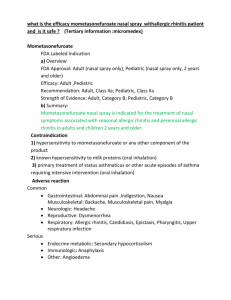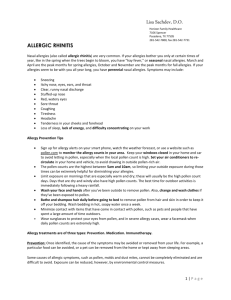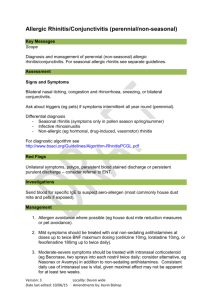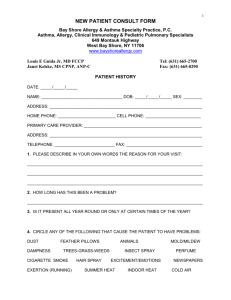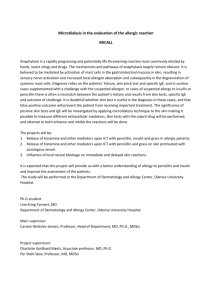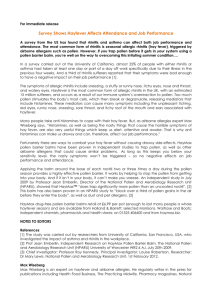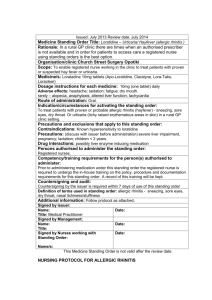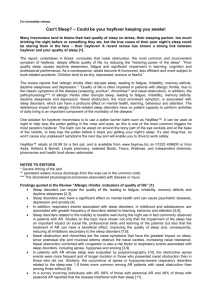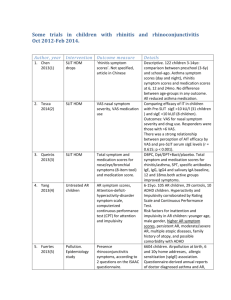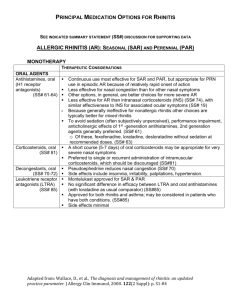Allergic Rhinitis - Plymouth Hospitals
advertisement
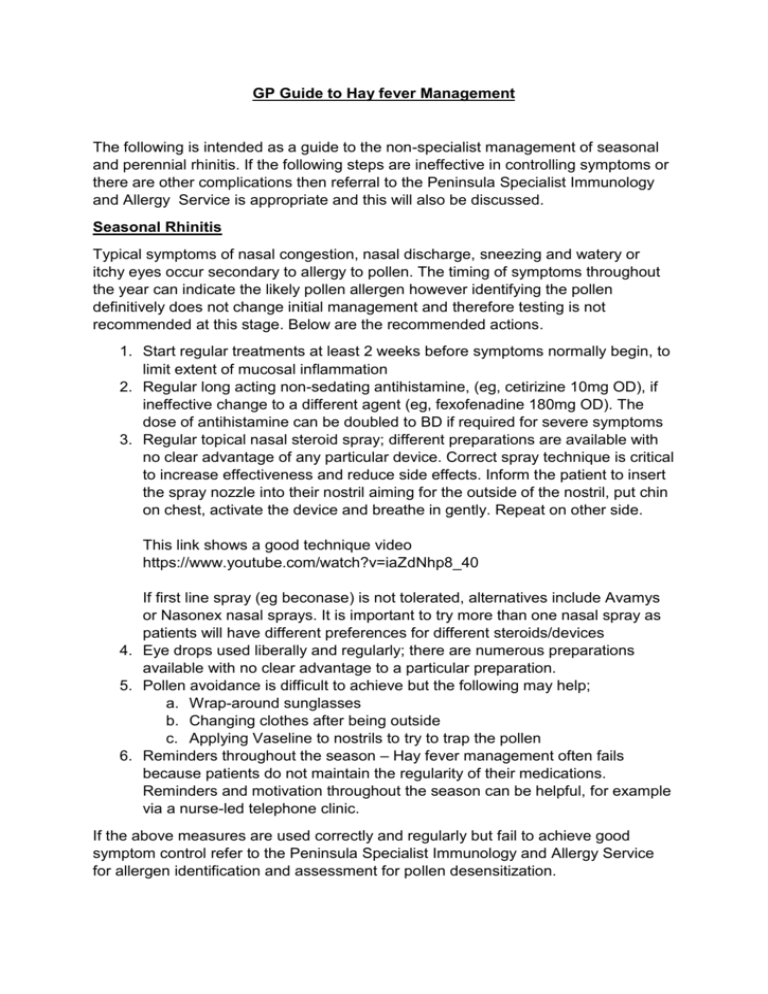
GP Guide to Hay fever Management The following is intended as a guide to the non-specialist management of seasonal and perennial rhinitis. If the following steps are ineffective in controlling symptoms or there are other complications then referral to the Peninsula Specialist Immunology and Allergy Service is appropriate and this will also be discussed. Seasonal Rhinitis Typical symptoms of nasal congestion, nasal discharge, sneezing and watery or itchy eyes occur secondary to allergy to pollen. The timing of symptoms throughout the year can indicate the likely pollen allergen however identifying the pollen definitively does not change initial management and therefore testing is not recommended at this stage. Below are the recommended actions. 1. Start regular treatments at least 2 weeks before symptoms normally begin, to limit extent of mucosal inflammation 2. Regular long acting non-sedating antihistamine, (eg, cetirizine 10mg OD), if ineffective change to a different agent (eg, fexofenadine 180mg OD). The dose of antihistamine can be doubled to BD if required for severe symptoms 3. Regular topical nasal steroid spray; different preparations are available with no clear advantage of any particular device. Correct spray technique is critical to increase effectiveness and reduce side effects. Inform the patient to insert the spray nozzle into their nostril aiming for the outside of the nostril, put chin on chest, activate the device and breathe in gently. Repeat on other side. This link shows a good technique video https://www.youtube.com/watch?v=iaZdNhp8_40 If first line spray (eg beconase) is not tolerated, alternatives include Avamys or Nasonex nasal sprays. It is important to try more than one nasal spray as patients will have different preferences for different steroids/devices 4. Eye drops used liberally and regularly; there are numerous preparations available with no clear advantage to a particular preparation. 5. Pollen avoidance is difficult to achieve but the following may help; a. Wrap-around sunglasses b. Changing clothes after being outside c. Applying Vaseline to nostrils to try to trap the pollen 6. Reminders throughout the season – Hay fever management often fails because patients do not maintain the regularity of their medications. Reminders and motivation throughout the season can be helpful, for example via a nurse-led telephone clinic. If the above measures are used correctly and regularly but fail to achieve good symptom control refer to the Peninsula Specialist Immunology and Allergy Service for allergen identification and assessment for pollen desensitization. Desensitization is available for certain pollens in injectable and sub-lingual forms. It is not suitable for everyone and requires significant commitment from the patient. Desensitization aims to reduce rhinitis symptoms from severe to moderate and therefore traditional therapies as described above will still be necessary. If a patient has multiple pollen allergies, desensitization may not provide complete benefit. If desensitization is appropriate, it is important that any asthma and hypertension are well controlled and that the patient is not taking any beta-blockers or ACE-I. Perennial Rhinitis Perrenial rhinitis can be caused by allergy to a large variety of aeroallergens which are present all year round. Perennial and seasonal rhinitis can coexist and patients can have multiple allergies to aeroallergens. Common perennial aeroallergens include house dust mite, mould and pet dander and can be difficult to avoid or control in the environment. Treatment is with regularly long acting non-sedating antihistamines and topical nasal steroids as described above. A referral to the Peninsula Specialist Immunology and Allergy Service can help identify the allergens which in turn can help target avoidance techniques. Alternatively a good screening test would include specific IgE blood tests to house dust mite, mixed mould and any pets the patient has regular contact with. Positive Specific IgE does not diagnose allergy (merely sensitization) and the results can be difficult to interpret if the patient is atopic. Total IgE has no place in routine allergy testing although can be useful in some cases if the patient is atopic. It is important to optimise any concomitant asthma and eczema care. Desensitization to perennial aeroallergens is not routinely available in the southwest however desensitisation to house dust mite is available in other parts of the country and may be considered in exceptional cases..
